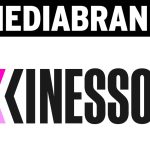By The Malketeer
Cultivating The Hidden Power of Employee Influencers
In an age dominated by digital marketing, the influencer economy has reshaped consumer engagement.
But for brands in Malaysia, it’s time to rethink the influencer playbook.
Instead of chasing after celebrity endorsements or Instagram stars, companies can leverage a goldmine of authentic influencers sitting right within their own offices: their employees.
Employees as Malaysia’s Untapped Thought Leaders
The concept of influencer marketing has long thrived in the B2C space, with social media stars racking up views, likes, and brand deals.
But as the Global Head of Thought Leadership at Siemens, Ophelie Janus, recently highlighted at LinkedIn‘s B2Believe event, in B2B, the most impactful influencers don’t have massive social followings—they have deep industry expertise.
In Malaysia, this shift is more relevant than ever.
Here’s why it’s time for Malaysian brands to make their employees their key influencers.
Your team members are living, breathing extensions of your brand.
They understand your mission, vision, and products at an intimate level, which positions them as powerful voices of credibility and trustworthiness.
When employees share their experiences and insights, they humanise your brand, turning faceless corporations into communities of experts.
“In our market, business decisions are often influenced by personal connections and recommendations,” says Mohan Menon, Principal Consultant at Resilient Business Solutions Sdn Bhd.
“When your employees become thought leaders, they’re not just sharing content – they’re building genuine relationships that reflect our unique business ecosystem.”
Building Influence Starts from Within
So how do you turn employees into authentic brand influencers?
The first step is acknowledging their influence potential.
According to the LinkedIn B2B Institute’s 95:5 rule, a large percentage of buyers in the B2B market aren’t actively seeking a purchase at any given moment.
But having employees consistently share thought leadership content on platforms like LinkedIn keeps the brand top of mind for future decision-making.
Here are some steps brands in Malaysia can take to empower their workforce as influencers:
- Provide Structure and Training: Like Siemens, Malaysian companies should ensure employees understand their roles as brand ambassadors. Offering clear social media guidelines, content creation tips, and storytelling workshops will help employees share their insights in a way that aligns with the brand’s values and goals.
- Create a Corporate Ambassador Programme: A structured initiative can help identify which employees are most active on social media and track the impact of their posts. As Janus points out, it’s all about precision and ensuring quality engagement. By measuring social media interactions, companies can assess how employee-driven content is building brand awareness.
- Collaborate with HR and Legal Teams: Ensuring there’s a solid foundation for employees to speak freely but responsibly is key. Working with human resources and legal teams to establish clear boundaries will provide employees with confidence to engage online without fear of overstepping.
Authenticity Drives Trust
Influencer marketing’s success in the B2C space is largely due to authenticity.
People trust people more than they trust companies.
This applies even more in B2B and other niche markets in Malaysia, where purchasing decisions often hinge on trust.
By positioning employees as thought leaders, companies foster a sense of authenticity that builds credibility with both customers and industry peers.
Take, for instance, Jon Evans, Chief Customer Officer at research firm System 1.
His personal podcast—originally seen as a distraction—has now become a valuable brand asset, boosting inbound customer inquiries.
This illustrates the power of personal employee profiles to drive business growth, especially when employees are encouraged to share valuable insights or even start passion projects tied to the industry.
The Malaysian Influence Playbook
To make employee-driven influence a reality, companies need to foster an environment that encourages employees to be proactive online.
Offering incentives for sharing thought leadership content, providing recognition for successful posts, and even creating internal content teams to help employees build their personal brands can go a long way.
Employees, especially in Malaysia’s competitive market, can become the face of the brand, helping companies stand out by projecting expertise and authenticity in equal measure.
In a world of growing noise and ever-shifting algorithms, Malaysian brands can no longer rely on just flashy ad campaigns or influencer partnerships.
The most sustainable and impactful way to engage audiences might just be within the four walls of your office.
MARKETING Magazine is not responsible for the content of external sites.










